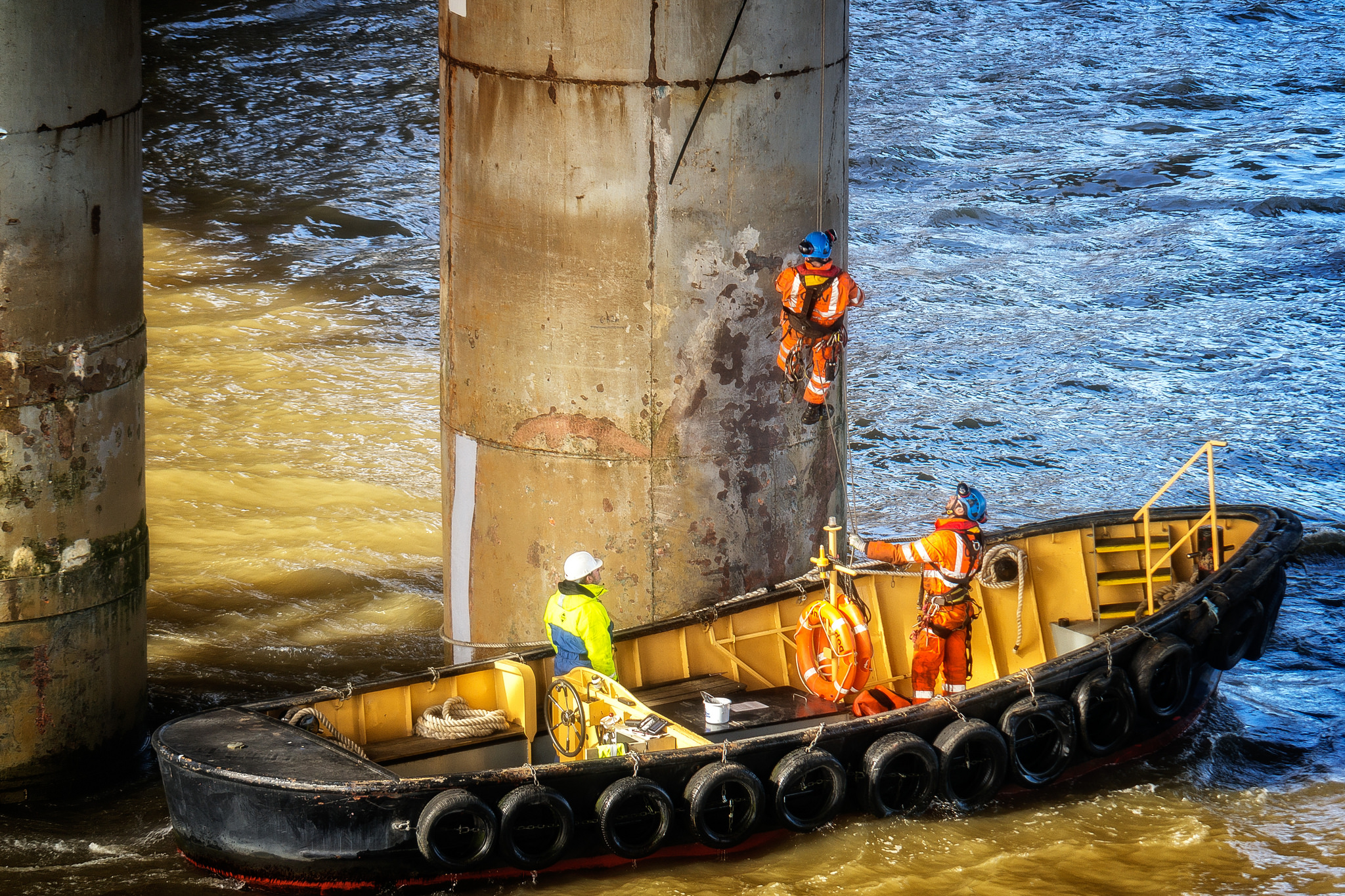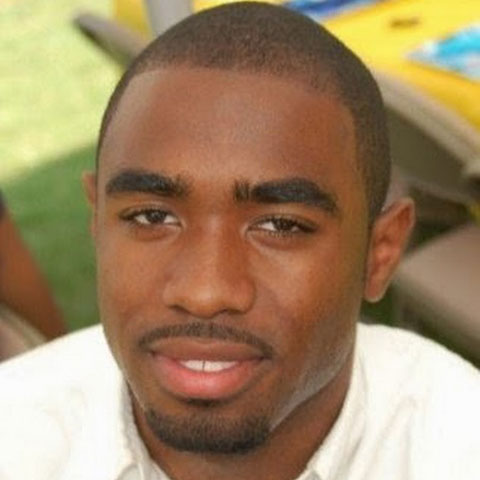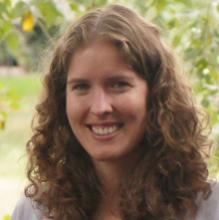Rhyming Engineer Makes Inspiring Students a Career

Image credits: Garry Knight via Flickr
Rights information: CC BY-SA 2.0
(Inside Science) -- People might not think of infrastructure as exciting. And they might not expect anyone to find poetry in concrete. But try this.
"Since things can sense things, why aren't we consenting, to put sensors in things, and thus preventing -- destruction. Construct and renew. Wouldn't it be cool if our bridges and buildings have nervous systems like we do?"
These are just a few lines from the ode to smart infrastructure that won Nehemiah Mabry, 30, a civil engineer and entrepreneur from North Carolina, the National Academy's "Engineering for You" video contest this year. (Scroll down to check out the video.)
Mabry designs and inspects bridges, tunnels and other infrastructure for a living. In 2012 he founded STEMedia, a company that works with schools, businesses and other organizations to promote science, technology, engineering and math through art, including videos and live events like STEM poetry slams.
Mabry says he has always enjoyed nurturing his artistic, as well as his technical, side. And he loves how his company gives him a chance to inspire others to design new solutions for the world's problems.
Inside Science chatted with Mabry about his passions, his career and what keeps him rhyming. The interview has been edited for brevity and clarity.
What got you interested in science and engineering?
I was introduced to engineering by my father back in 11th grade. I had heard of it, but wasn't really familiar with the field. And it just so happened that same year, my junior year in high school, there was an opportunity to apply for an internship at NASA.
I became a research apprentice at NASA in Huntsville, Alabama, at the Marshall Space Flight Center. And, yeah, I feel in love with engineering. But more so, I got to see all the types of things that went on there, from the testing, to the coding, to the structural studies and things of that nature.
NASA was kind of the beginning of my practical engineering experience.
Was your father an engineer?
My father began as an engineering major in college, but finished a different degree earlier and started working. He always wanted to finish his engineering degree. After I got involved and really started liking it, he decided to go back and finish. So he finished his degree shortly before I finished my degree.
What made you fall in love with engineering?
Growing up, I really liked art and design. But at the same time, I became aware of strengths in math and science. And so, I began to see how the world of engineering really combined the two in my eyes. Being able to design something, have an idea, sketch it out, see how it should work, and then, before you know it, you're doing it, and then there it is -- a prototype.
Does the impact it has on the world also inspire you?
Without a doubt. Here's the thing -- Although I had my internships at NASA, I chose civil engineering. The reason why is because I had a clear conception of its impact on society. You know -- the bridges that we drive over every day, the roads that take us across the countryside. Also, the systems and infrastructure that are in place to get us our resources, for instance our water and our power -- that's all connected to civil engineering.
What's the origin story for STEMedia?
Well, one thing that was consistent throughout my academic career was that I was always involved in creative endeavors as well. While I was an undergrad I was in an improv drama group, I was singing in a number of choirs, I picked up the bass guitar. I still enjoy art and drawing.
After getting to grad school, and hearing a push for STEM, and the need for increasing the number of graduates and reducing the attrition rate, I decided to add my voice to the narrative.
We've done video projects, but also a lot of events, public speaking and workshops.
Where do you hold your STEM poetry event?
We have it on the campus of North Carolina State University. It's pretty much a student event. We partner with student organizations, and challenge students to write their own poetry pieces and perform them. We get sponsors for prizes and open it up to the student body, as well as the public, to come and attend, and enjoy the performances. It's grown. The first time we had about 80 students, and the second time it doubled. We're looking to do it a third time next year. Hopefully it grows even more.
How did you come up with the idea that won the "Engineering for You" video contest?
I definitely decided to bet on my strengths with that one. STEM poetry was big with STEMedia. And so I said, "That's it! I'm going to write a STEM poetry piece about an engineering project that I know a lot about." That project was structural health monitoring, something that was very much a part of my graduate study and the work that I do on a daily basis.
What other big problems do you think science and engineering will help us solve?
There's the need for sustainable cities, being able to become more efficient in how we utilize our power, how we distribute it across the grid. We need more sustainable sources of energy. Engineers of course work on issues related to climate change, being able to make sure we are responsible as it relates to our footprint. So, the list really goes on and on and on.
I like to say to the students when I get to speak to them, "We need your ideas." Right now, you may have ideas that are scattered, that you don't have a place for. But at some point in the future, the training and the background that you have are going to combine with the ingenuity and imagination that you have, and you're going to be able to solve a problem in a way that no one could prior to you.
What would you say to students who might think math and science are too nerdy for them?
The word technology is often associated with electronics and digital devices, but in a very generic sense, technology is anything that makes something easier or better. Oftentimes this comes from an individual who looks at the world just a little bit different.
Put aside any perception of math and science as being nerdy, and instead realize that those are just tools that will enable you to create something that you couldn't do without those tools. Focus on the big ideas that you have. On the way, you pick up your calculus, you pick up your physics, and you put those into your toolbox. Then one day you're going to produce something. You won't just have the next big thing, you'll create it.
What inspires you to inspire others?
That's it, that's it right there. I'm inspired by inspiring.
The more I hear myself tell others, "Stay with it, we need your dreams," the more I'm motivated to go back into my lab, so to speak, put my head down and really work hard. And when I'm in my lab seeing this connection, not just to the world around me, but to art and community, I just really want to share that with someone else. The more I share that with someone else, the more my eyes light up. It's kind of similar to my experience with my father. It creates a symbiotic, mutual inspiration.


